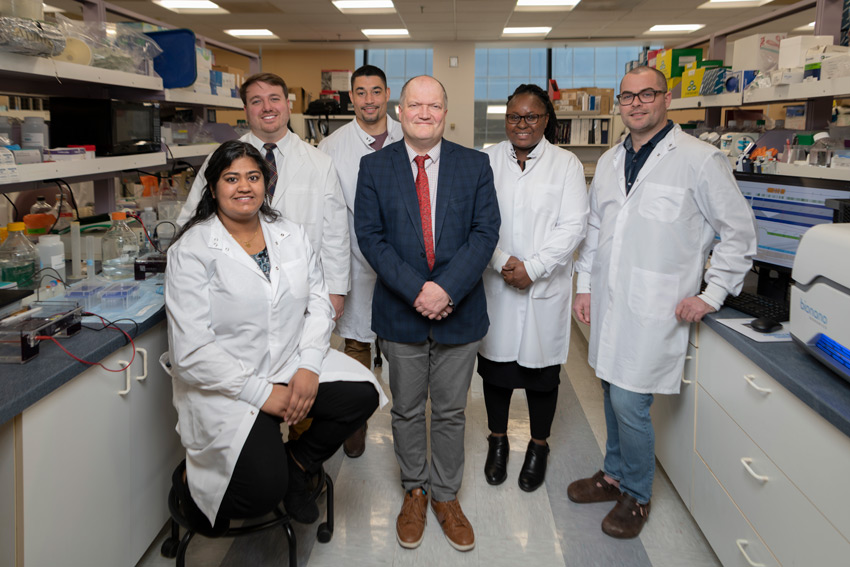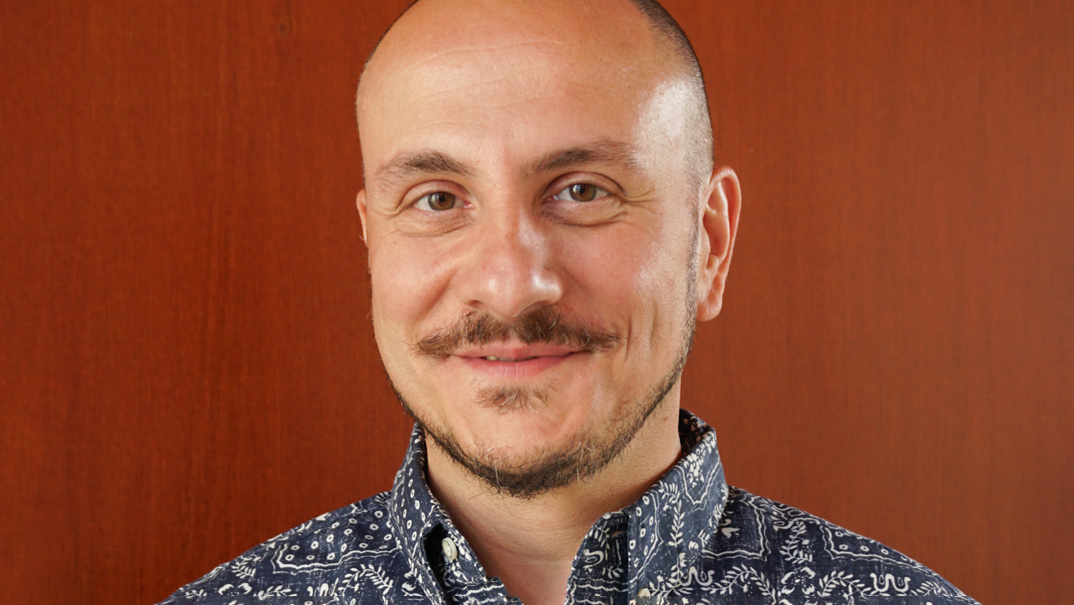CHILDREN'S NATIONAL RESEARCH INSTITUTE ACADEMIC ANNUAL REPORT 2021

Spotlight
Research in sub-Saharan Africa uses genomics and AI to diagnose non-communicable diseases and conditions
Innovative research projects in sub-Saharan Africa combine state-of-the-art technology, science and diplomacy to diagnose non-communicable diseases at a low cost and shed light on the association between an irreversible motor neuron disease, known as Konzo, and the consumption of bitter cassava. The projects were a vision from the Director of the Center for Genetic Medicine Research at Children’s National Hospital Eric Vilain, M.D., Ph.D., who started them as pilot projects and now have fully blossomed in the past two years.
Non-communicable diseases, also known as “Africa’s new silent killers,” are rising. Center for Genetic Medicine Research projects support global health and emerging needs because what happens on a world stage that accounts for diverse populations also applies to our local communities." –Eric Vilain, M.D., Ph.D.
The projects first required science and diplomacy to establish equal partnerships and foster constant communication and data sharing in both directions. “We are hosted by our African partners and we are grateful for their support,” Dr. Vilain said.
In Africa, most research focuses on infectious diseases with immediate public health concerns, including Ebola, HIV, dengue and malaria. However, non-communicable diseases, also known as “Africa’s new silent killers,” are rising. The projects support global health and emerging needs because what happens on a world stage that accounts for diverse populations also applies to our local communities.
The Rapid, Low-Cost Diagnosis of Congenital Malformations Project in the Democratic Republic of the Congo (DR Congo) is the first newborn screening infrastructure in sub-Saharan Africa. It prevents complications of non-communicable conditions and it is unique in the context of low-income countries.
The researchers use mGene, a low-cost, non-invasive application for smartphones that identifies a wide array of genetic syndromes. Developed at Children’s National by Principal Investigator Marius Linguraru, D.Phil., the mGene app can adapt, using Artificial Intelligence (AI), to local populations and considerably increase the accuracy. It is complicated to diagnose congenital syndromes in diverse populations. Still, mGene recognizes Down syndrome in Congolese populations while a genetic tool adapted to a low-resourced environment confirms the genetic diagnosis flagged by the app. The combination of mGene and the genetic analyzer can also be used on newborns for genetic screening to identify common conditions such as sickle cell anemia.
In phase I, the researchers trained the app using 132 individuals from DR Congo and then used it on 66 patients with Down syndrome. Phase II will test the combination of the mGene app and a novel, low-cost genetic tool developed by Dr. Vilain’s laboratory on 3,000 newborns from Kinshasa, the country’s capital, as part of the newborn screening program.
The Konzo and Cassava Project seeks to better understand the link between cassava—the staple food of over 700 million people in the world—and a neurologic disease named Konzo, that occurs when poorly processed cassava that grows in soils with unbalanced nutrients and contains cyanide is ingested by children. Existing educational interventions train consumers to treat cassava properly to remove the cyanide before consumption, but it is not very efficient.
The study explores the role of the gut flora that may either decrease or increase the risk of Konzo, modulating the severity of the neurotoxicity. If the research finds a correlation, Dr. Vilain envisions designing trials that modify the gut flora as a protective tool using approaches such as probiotics.
“If we demonstrate a modulating effect on a severe disease by the microbiome, this could be tested in many other conditions,” Dr. Vilain said. “We already see differences in the gut flora between zones of high prevalence and low prevalence of Konzo.”
The researchers collected all the samples and are currently analyzing the data. “The sample collection process is challenging because there are affected regions that are hard to access,” Dr. Vilain said. “There are many logistical difficulties, such as accessing roads—especially during the rainy season—earning the trust of the population, encountering language barriers, protecting the samples once collected and transporting the samples.”
The Center for Genetic Medicine Research also trains Congolese students on how to handle the instruments used in the projects to bring that knowledge back to DR Congo. The center offers a comprehensive program with access to didactic courses and hands-on training to medical students, graduate students or junior faculty. They also provide training in bioinformatics and data analysis.

